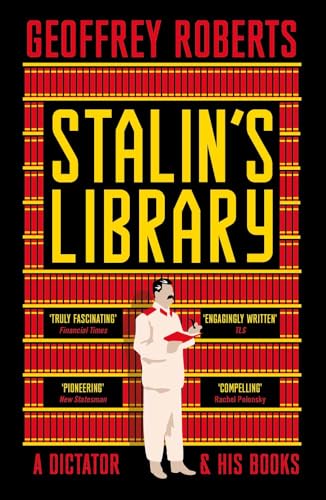What do you think?
Rate this book


288 pages, Paperback
First published February 8, 2022
Stalin își citea cărțile în diverse moduri, fie selectiv sau cuprinzător, fie superficial sau cu o atenție avidă. Pe unele le citea din scoarță în scoarță, în timp ce pe altele doar le răsfoia. Uneori începea să citească o carte, își pierdea interesul după câteva pagini și trecea de la introducere la concluzie. Pe unele le citea pe nerăsuflate, iar pe altele le parcurgea din când în când, în funcție de timpul avut la dispoziție și de interes.